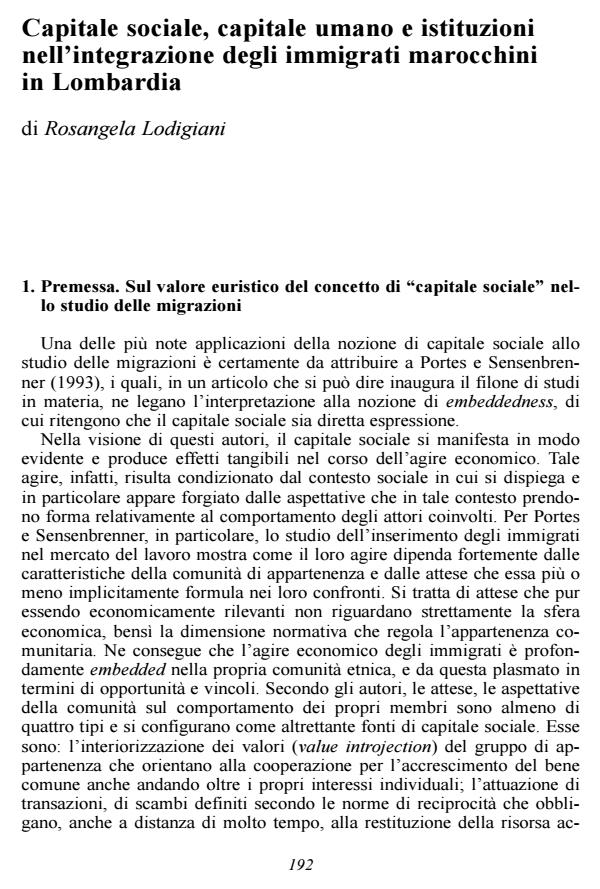Capitale sociale, capitale umano e istituzioni nell'integrazione degli immigrati marocchini in Lombardia
Titolo Rivista SOCIOLOGIA DEL LAVORO
Autori/Curatori Rosangela Lodigiani
Anno di pubblicazione 2006 Fascicolo 2006/102
Lingua Italiano Numero pagine 21 P. Dimensione file 61 KB
DOI
Il DOI è il codice a barre della proprietà intellettuale: per saperne di più
clicca qui
Qui sotto puoi vedere in anteprima la prima pagina di questo articolo.
Se questo articolo ti interessa, lo puoi acquistare (e scaricare in formato pdf) seguendo le facili indicazioni per acquistare il download credit. Acquista Download Credits per scaricare questo Articolo in formato PDF

FrancoAngeli è membro della Publishers International Linking Association, Inc (PILA), associazione indipendente e non profit per facilitare (attraverso i servizi tecnologici implementati da CrossRef.org) l’accesso degli studiosi ai contenuti digitali nelle pubblicazioni professionali e scientifiche.
Assuming that the concept of social capital has a heuristic capacity if applied to the study of international migrations, the article employs it as a key to understand the features of Moroccan immigration in Lombardy, with specific attention to female immigration, which is less known and investigated by the research in Italy. By making use of the concept of social capital is possible to explain settlement strategies of the Moroccans and their integration dynamics in the local labour market. However, studying the peculiarity of these phenomena, it becomes clear that it is necessary to consider the different types of social capital as first Putnam and more recently Woolcock and Fiedl suggested, distinguishing by three types: bonding, bridging, linking in order to understand which one is the more common in an ethnic group, the Moroccans, that is described as a familistic community. Furthermore, the article tries to investigate both the link existing between social capital and human capital, and the role that local institutions could have in developing social capital.
Rosangela Lodigiani, Capitale sociale, capitale umano e istituzioni nell'integrazione degli immigrati marocchini in Lombardia in "SOCIOLOGIA DEL LAVORO " 102/2006, pp , DOI: